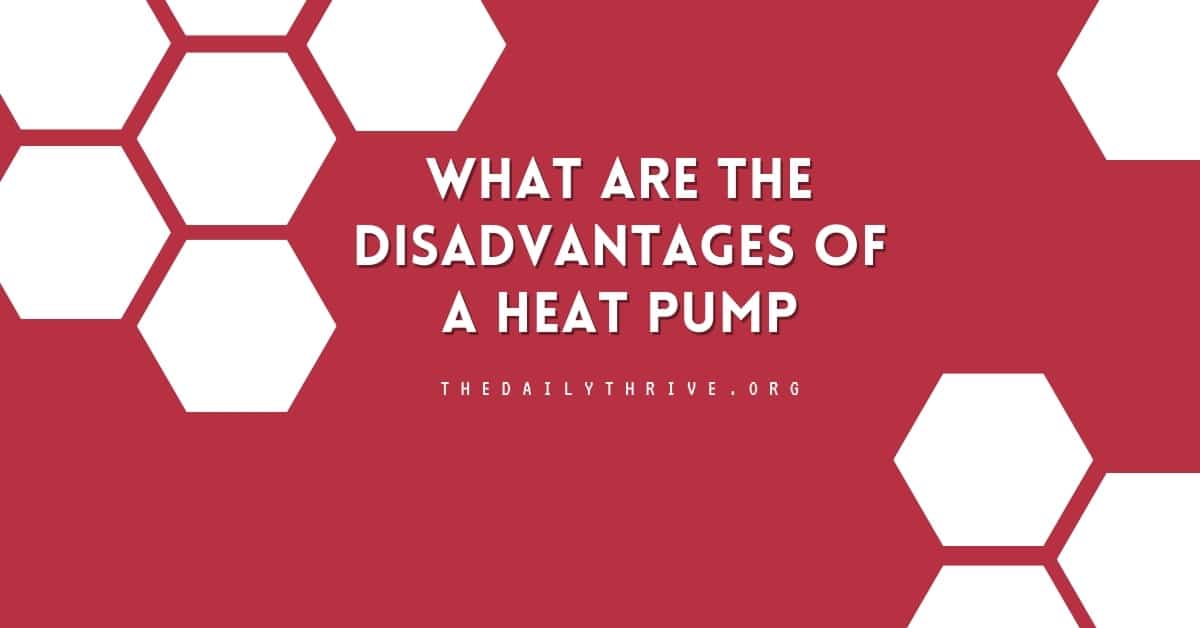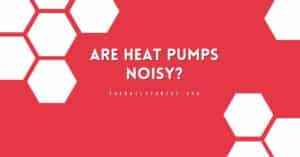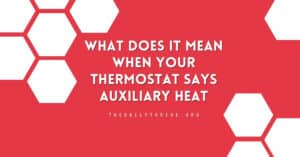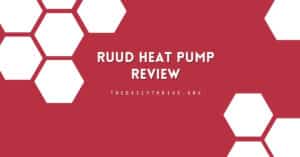Many of you who have heat pumps and those of you who have heard of them or considered adding one have heard about the disadvantages of a heat pump. While I prefer other heating systems, I must contend that heat pumps are a good way to heat in certain situations.
Heat Pump Pros and Cons
Heat pumps have several potential pros, including:
- Energy efficiency: Heat pumps are generally more energy efficient than traditional heating and cooling systems, particularly in mild or moderate climates. They can also provide heating and cooling from a single unit, which can be more efficient than separate systems for each function.
- Cost savings: While heat pumps can be more expensive to purchase and install than traditional systems, they can save you money in the long run by reducing energy costs.
- Low environmental impact: Heat pumps do not burn fossil fuels and do not produce harmful emissions, making them a more environmentally friendly option.
- Long lifespan: With proper maintenance, heat pumps can last many years, which can be cost-effective in the long run.
- Quiet operation: Many newer heat pump models are designed to operate quietly, benefiting a residential setting.
- Versatility: Heat pumps can be used for heating and cooling, providing year-round comfort for a home or building.
- Zone control: Allows to control of the temperature separately in different zones in a house
- Smart technology integration: Heat pumps can be integrated with smart home technology, allowing you to control temperature and schedule with a phone or tablet.
Heat pumps also have several potential cons, including:
- Inefficiency in extremely cold temperatures: Heat pumps can lose efficiency when the outdoor temperature drops below freezing. This means that they may not be the best choice for areas with very cold winters.
- Initial cost: Heat pumps can be more expensive to purchase and install than traditional heating and cooling systems, although they can save you money in the long run.
- Noise: Some heat pump models can be quite loud, especially when they first turn on or switch between heating and cooling modes.
- Limited heating range: Some heat pumps cannot provide the same heat level as a traditional furnace, so they may not be suitable for very large or very cold spaces.
- Requires proper insulation and air sealing: to perform well, heat pumps need proper insulation of the building and air sealing to minimize heat losses.
- Refrigerant leaks: In rare cases, heat pumps can develop leaks in the refrigerant lines, which can be costly to repair.
- Maintenance: Regular maintenance is needed for heat pumps to operate efficiently, which can add to the overall cost of ownership.
- Complexity: Heat pumps are more complex machines than traditional HVAC systems, and troubleshooting issues can be more difficult.
It’s important to remember that these disadvantages may not apply to all types of heat pumps or all systems. Also, the efficiency and lifespan of the heat pump units depend on the quality of the unit and how well it is maintained. So it’s always a good idea to consult with a professional HVAC technian before making any decision.
Common Heat Pump Problems
Let’s address your concerns with this list of heat pump problems that make reason the disadvantages of a heat pump:
Reason 1: Gas and oil systems are usually sized larger than needed, and as a result, one gets used to having instant heat or at least having the house warm in a hurry. A properly working heat pump will heat a house slowly and maintain an even temperature.
Reason 2: If you push the thermostat up to get the house warm in a hurry, you will usually cause the electric heat to come on and raise your electric bill. This problem can be corrected by the addition of a relay and a lockout thermostat (outside). Just switching off some of the electric stages will go a long way to saving money. Anyone who tells you that they can’t do this is criminally incompetent.
Reason 2: In attempts to save energy by manually setting back the thermostat, you will waste all your savings. This can easily be corrected by adding a switch between the W terminal on the thermostat and the W terminal on the indoor unit. You can leave the W line connected from the heat pump (outdoor unit) and maintain the defrost heat function. If you would like the indicator lamps on the thermostat to still work, then a relay can be added that will light the lamp but leave the electric heat command from the thermostat disabled. You cannot disable the indicator light unless your thermostat has a separate L terminal like some models on Honeywell or White Rodgers.
Reason 3: Heat pumps are usually sized for cooling (for good dehumidification), and the heat is made up my expensive electric resistance heat. If heat pumps had two-speed compressors and were sized for twice the cooling needed, this would be less of a problem.
If you have a two-stage system sized for cooling, it will have thermostatic expansion valves in both directions and run very efficiently in low mode.
Reason 4: Heat pumps lose their effectiveness (not to be confused with efficiency) the colder it gets outside, forcing you to either use the electric heat or stay cold. This is why ground source or geothermal systems work well. A heat pump can work at very cold temperatures with a thermostatic expansion valve and clean coils.
Reason 5: The system is designed poorly, so the ductwork is too small, resulting in a lot of air noise and drafts of air that are not as warm as one would be used to on a gas or oil system. If you have excessive air flow and a direct drive blower, the motor can be set to a lower speed without any major loss in efficiency.
Reason 6: Bad media campaigns have convinced homeowners that they don’t work when they do quite well, especially against propane or oil heat. Keep in mind that each fuel source has its lobbies. When oil or gas prices shoot up, a heat pump is very attractive.
Reason 7: If you have had oil or gas-forced air in the past, you may think there is something wrong with your heat pump unit because the discharge air temperature is not as warm. Warmer is not always better, you can restrict the airflow and make a heat pump put out hot air, but you will lose efficiency. The same is true of gas and oil.
Reason 8: If the defrost circuit is not working right when the unit goes into a defrost to prevent icing, you may get a blast of cold air thinking it is normal, but it can be corrected. When the unit goes into defrost mode, it is air conditioning or cooling for a brief time.
Reason 9: They can be difficult to work on if you don’t understand how they work.
Reason 10: Many contractors don’t understand how they work. Remember, if you ask them, they will tell you that they are the best, but they can’t repair your system, and they would be more than happy to sell you a new one.
If you have propane or oil-forced air or hot water, consider adding a heat pump as a backup or primary system to save money or hold you out in case you run out of fuel. If you have us install your fossil fuel kit, I can rig controls so if you run out of oil or propane, you can be automatically switched to heat pump operation so your house won’t freeze. The kits I have seen, especially Rheem Ruud, don’t have a provision for detecting loss of fuel. A basic fossil fuel kit is just a relay to deactivate the heat pump on a call for the second stage. If this relay was connected to the oil burner motor, you would have a “fail-safe.”
Conclusion
A heat pump is a type of HVAC system that can be used for both heating and cooling. The main advantages of heat pumps include energy efficiency, cost savings, low environmental impact, long lifespan, quiet operation, versatility, and Zone control.
However, heat pumps also have some potential disadvantages, including inefficiency in extremely cold temperatures, high initial cost, noise, limited heating range, proper insulation and air sealing, the possibility of refrigerant leaks, and regular maintenance needs.
It’s important to note that the efficiency and lifespan of the heat pump unit will depend on the quality of the unit and how well it is maintained, so it’s always a good idea to consult with professionals and do a proper cost-benefit analysis before making a decision. Additionally, the pros and cons may not apply to all types of heat pumps, and it may depend on the location’s specific usage and climate conditions.






